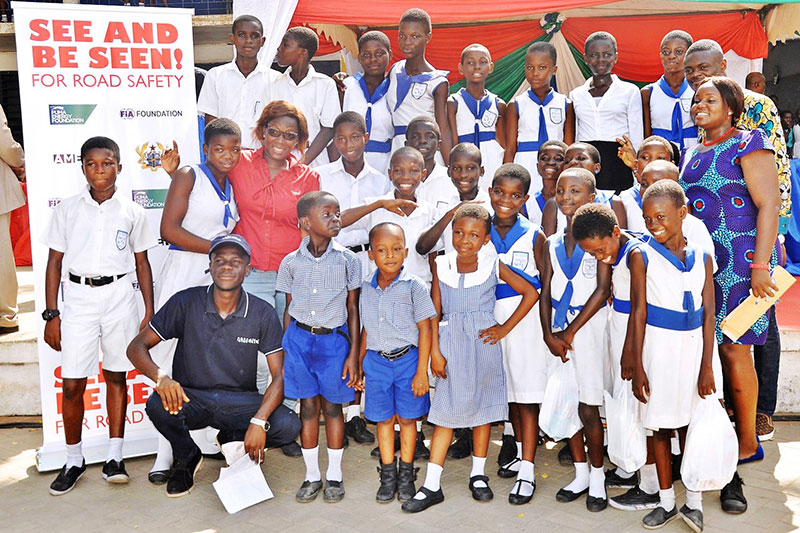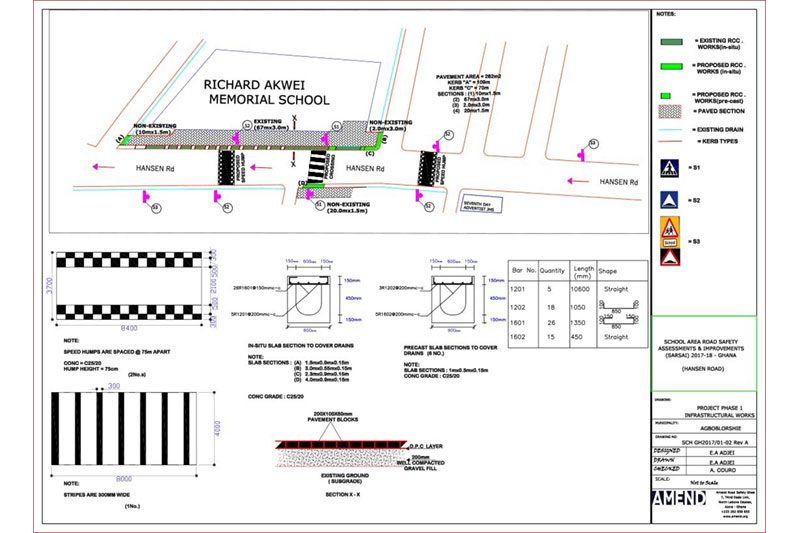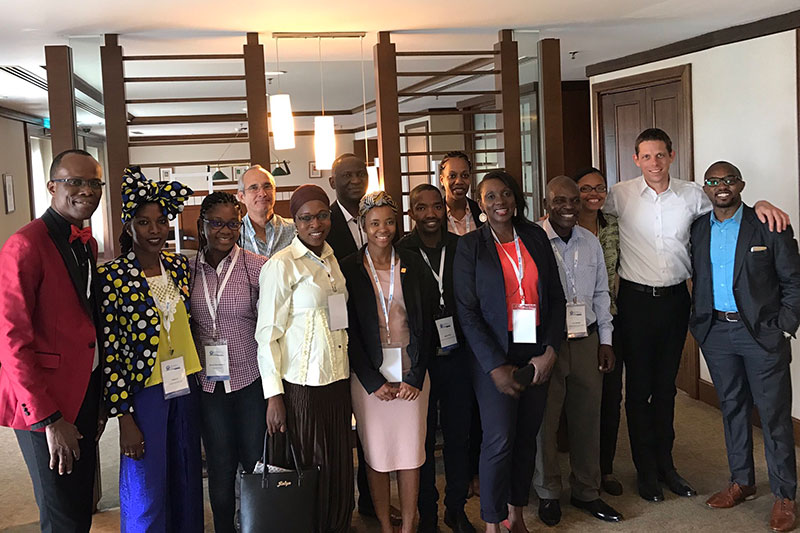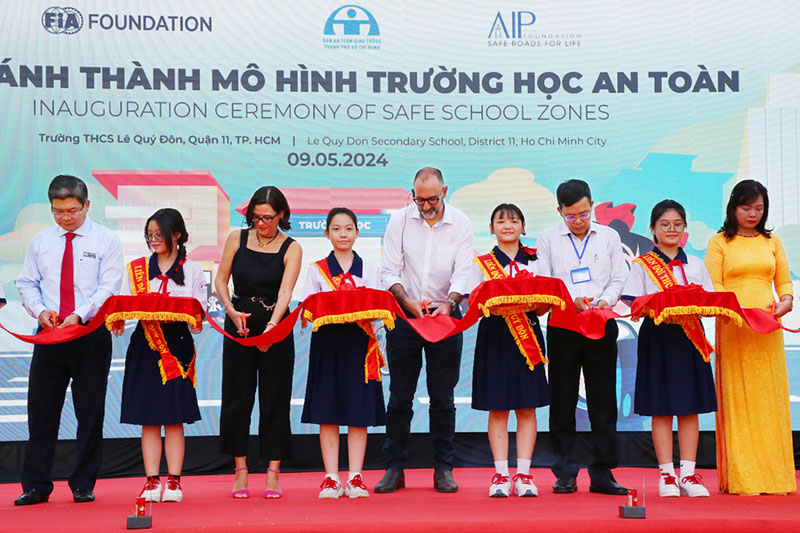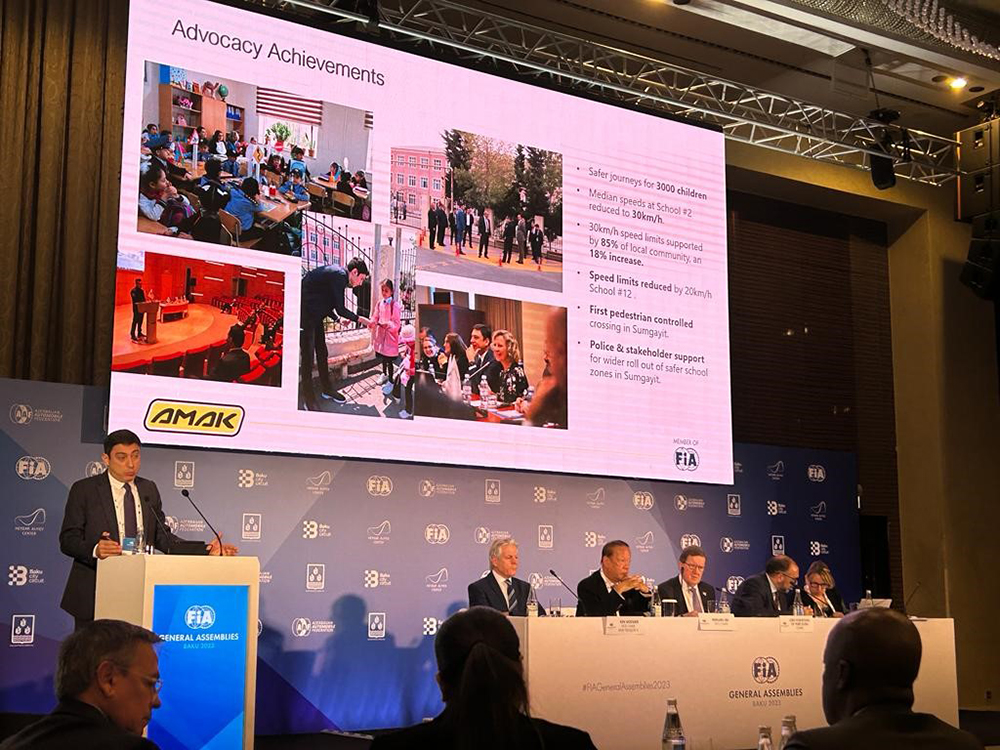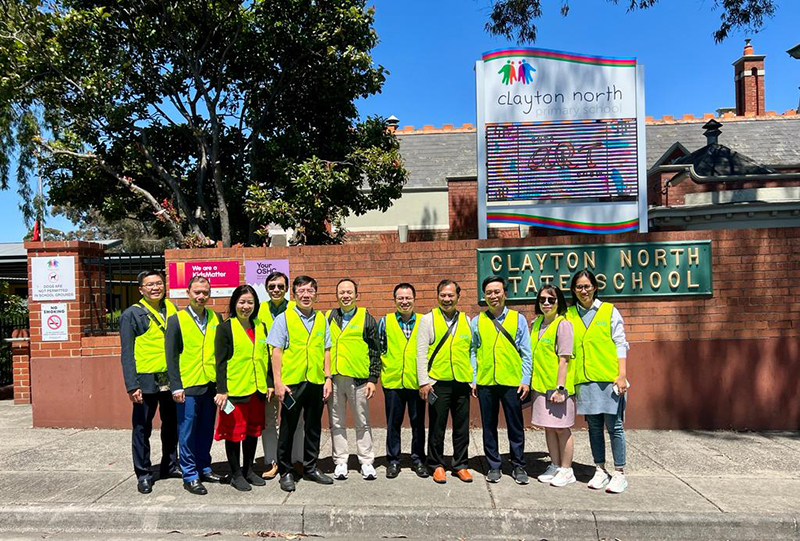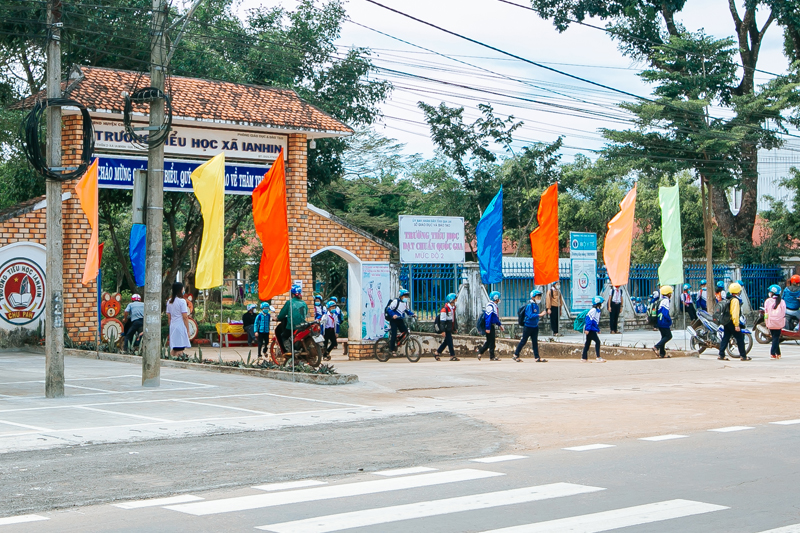African schools safe infrastructure campaign gets underway
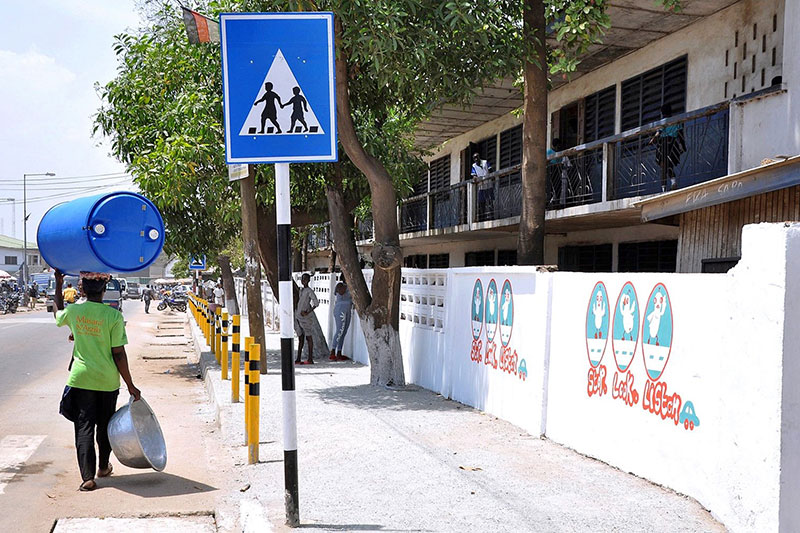
Amend has launched new safe-school-area work in 10 African countries (Benin, Botswana, Côte d’Ivoire, Ghana, Malawi, Mozambique, Namibia, Senegal, Tanzania, and Zambia) supported with more than USD $1.7 million in funding over the next three years. During this project, 30 high-risk school areas – where at least 2% of the student population is injured in road traffic every year – will receive Amend’s proven-effective school-area road safety programme.
The demonstration projects will showcase the evidence for an advocacy push encouraging governments and municipalities to take responsibility for the safety of their schoolchildren and build into road budgets the cost-effective and injury-preventing infrastructure safety and speed reduction program. The new programme, share-funded by the FIA Foundation and Puma Energy Foundation, has got underway with events so far in 2017 in Tanzania, Ghana, Côte d’Ivoire and Benin.
Child pedestrians are among the highest-risk groups in Africa for road traffic injury. Unlike their peers in wealthier regions, the vast majority of schoolchildren in urban Africa – over 80% in one study – walk to school, and they usually do so unaccompanied. A child in Africa is twice as likely to die on the roads as a child in any other region, and in some parts of Africa’s quickly growing cities, road traffic injury rates among child pedestrians exceed 3% per year.
To address this pressing public health and development issue, Amend has developed its SARSAI programme, which is focused on reducing road traffic injury around school areas in urban Africa where children are known to be at very high risk.
SARSAI involves the systematic assessment of areas around schools, the identification of measures to reduce vehicle speeds and separate children from traffic, and the implementation of those measures. This work includes:
- A standardized assessment of school areas that looks at the existing behaviour of children, drivers and other road users, and physical infrastructure
- Government and community engagement
- Identification of appropriate measures to improve safety, based on the assessment
- Implementation of measures, including infrastructure improvements (such as speed humps, bollards to protect pedestrian areas, footpaths, signage, new school gates, etc.), and community and school road safety education
- Monitoring and evaluation
Amend, in partnership with the United States Centers for Disease Control and Prevention, conducted a multi-year population-based control impact evaluation of SARSAI in Tanzania and found that the programme reduced injury rates by 26% and lessened the severity of those injuries that did occur.
Saul Billingsley, Executive Director of the FIA Foundation said, "Amend is working for some of the poorest, most vulnerable, children on the planet, children whose needs and interests are off the radar for most policymakers. Through effective coalition building and unswerving dedication to hard evidence, Amend is demonstrating that child road traffic injuries can be affordably prevented. The FIA Foundation is proud to continue our support and partnership."
Vincent Faber, Executive Director of the Puma Energy Foundation said, “Building on a partnership established over several years, our collaboration with Amend is in my eyes clearly one of the Foundation’s most successful. I have been struck by Amend’s expertise in developing tailored programs based on local realities, by their innovative approach to improving road safety in African countries with work that is proven to save children’s lives, and by their promotion of sustainable solutions at the highest policy-making levels within the concerned state authorities. We have found in Amend a most knowledgeable, reliable and resourceful partner with whom we share the vision of making African roads safe for children.”
Jeffrey Witte, Executive Director of Amend said, “We are extremely grateful for the FIA Foundation and Puma Energy Foundation’s support for Amend’s work to save children’s lives on Africa’s dangerous roads. In particular, their support of evidence-based projects that take the long view of how to sustainably save lives on Africa’s roads is remarkable. We look forward to preventing injuries in the short term with the safe infrastructure we will deliver in this project, while also using these lifesaving measures to demonstrate to governments that they, too, can – and indeed must – act to save the lives the most vulnerable citizens on their roads: children.”
